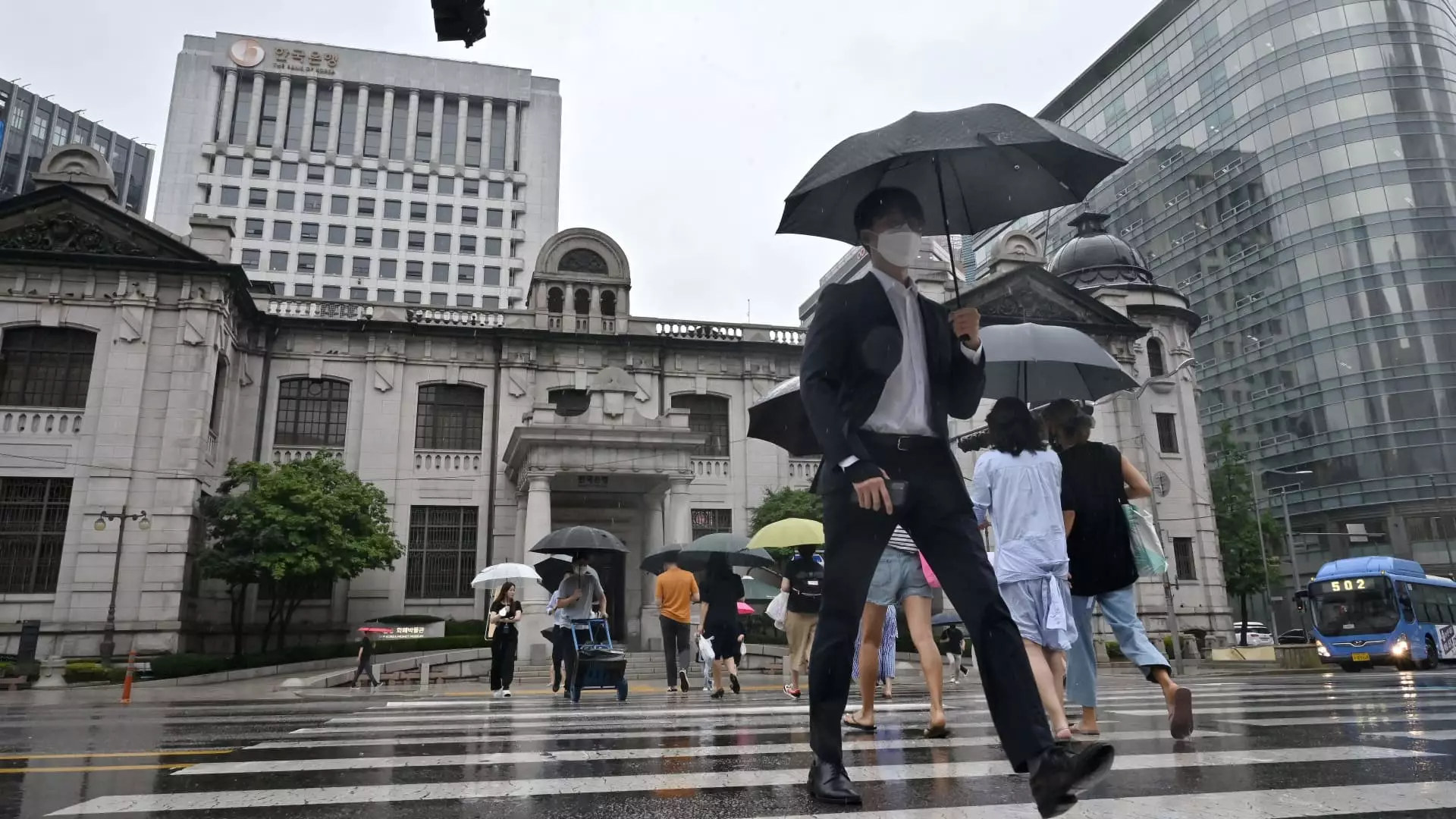In a significant move, South Korea’s central bank, the Bank of Korea (BOK), has decided to reduce its benchmark interest rate by 25 basis points, bringing it down to 3.25%. This decision marks the first interest rate cut since the U.S. Federal Reserve commenced its tightening strategy in March 2022, reflecting a notable shift in economic conditions and monetary policy. The rate cut aligns with predictions made by economists, highlighting a consensus on the need for adjustments in monetary strategies given the evolving economic landscape.
The backdrop to this decision includes South Korea’s current inflation rate, which has fallen to its lowest point in three years, recorded at 1.6% in September. This figure is considerably below the BOK’s target of 2%, indicating that inflationary pressures are subsiding. The BOK acknowledged this trend, suggesting a stabilization in inflation rates which contributes to their rationale for revising their stance on monetary policy. Additionally, the decrease in the growth of household debt, coupled with reduced volatility in the foreign exchange market, has provided the BOK with more flexibility in its monetary policy decisions.
To comprehend the current decision, it is essential to reflect on the BOK’s previous trajectory of rate increases. Since August 2021, the BOK had implemented a series of aggressive rate hikes, totaling 300 basis points to reach a 15-year peak of 3.5% by January 2023. These hikes were driven by significantly elevated inflation rates, which surged to 6.3% in July 2022—the highest in two decades. This past context underscores the BOK’s cautious approach in navigating inflation and economic stability, which has now prompted them to consider a more accommodative stance.
Financial analysts and economists have provided insights into the implications of the BOK’s decision. Park Seok Gil, chief Korea economist at JPMorgan, indicated that the BOK’s rate cut might signal the onset of a broader downward cycle in interest rates. This perspective suggests a strategic move to recalibrate the policy stance rather than merely responding to weakened domestic demand. Furthermore, other economists, including Kathleen Oh from Morgan Stanley, agree that the conducive macroeconomic environment, characterized by stable inflation rates, supports the decision for a rate cut.
Looking ahead, the BOK’s decision could pave the way for additional rate adjustments. Should the BOK continue to moderate its restrictive policies, a reduction by approximately 75 basis points could stimulate certain areas of private consumption. As housing market pressures abate and the economic environment stabilizes, the potential for further rate cuts could enhance consumer confidence and spending.
South Korea’s recent decision to cut interest rates is not just a reaction to current conditions but also a strategic adjustment aimed at fostering economic growth and stability. As the global economic outlook remains uncertain, this pivotal moment in South Korea’s monetary policy might signal a broader trend toward normalization in the wake of fluctuating inflationary pressures.


Leave a Reply